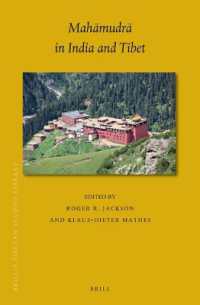- ホーム
- > 洋書
- > 英文書
- > Nature / Ecology
Full Description
Environmental sustainability in the developing world is the focus of this book. Environmental problems Indonesia encounters in its path to economic development are typical of those in other developing countries, and solutions it may find can serve as guidelines for other developing countries anticipating a similar economic take-off.






